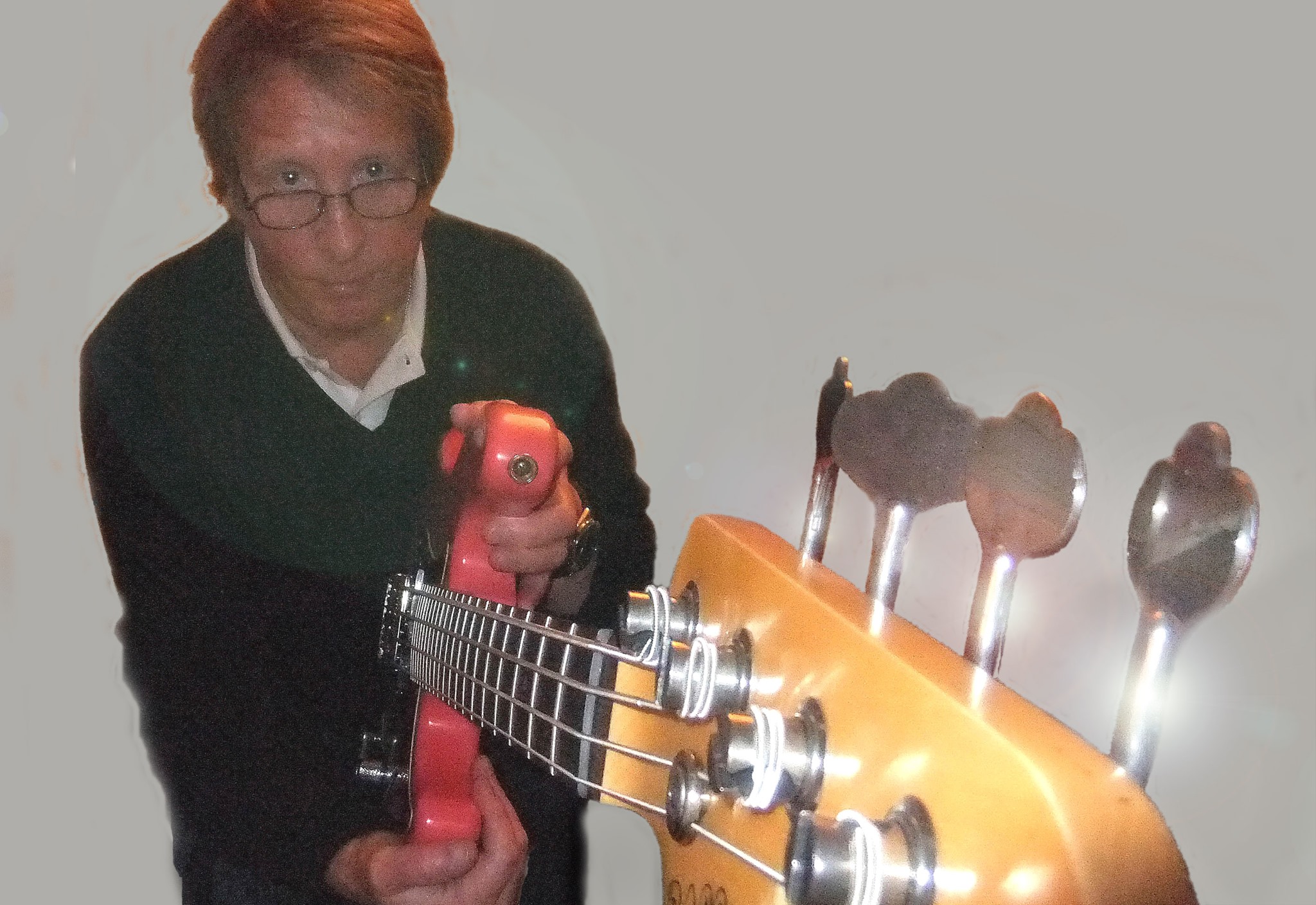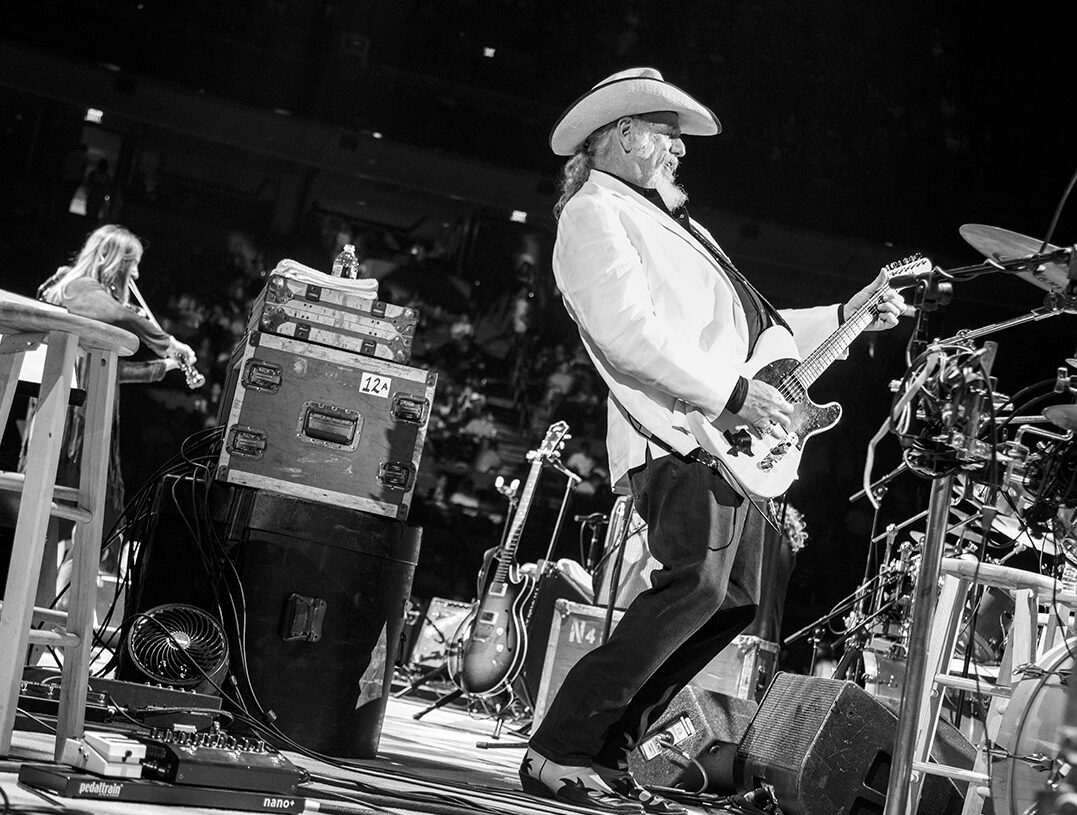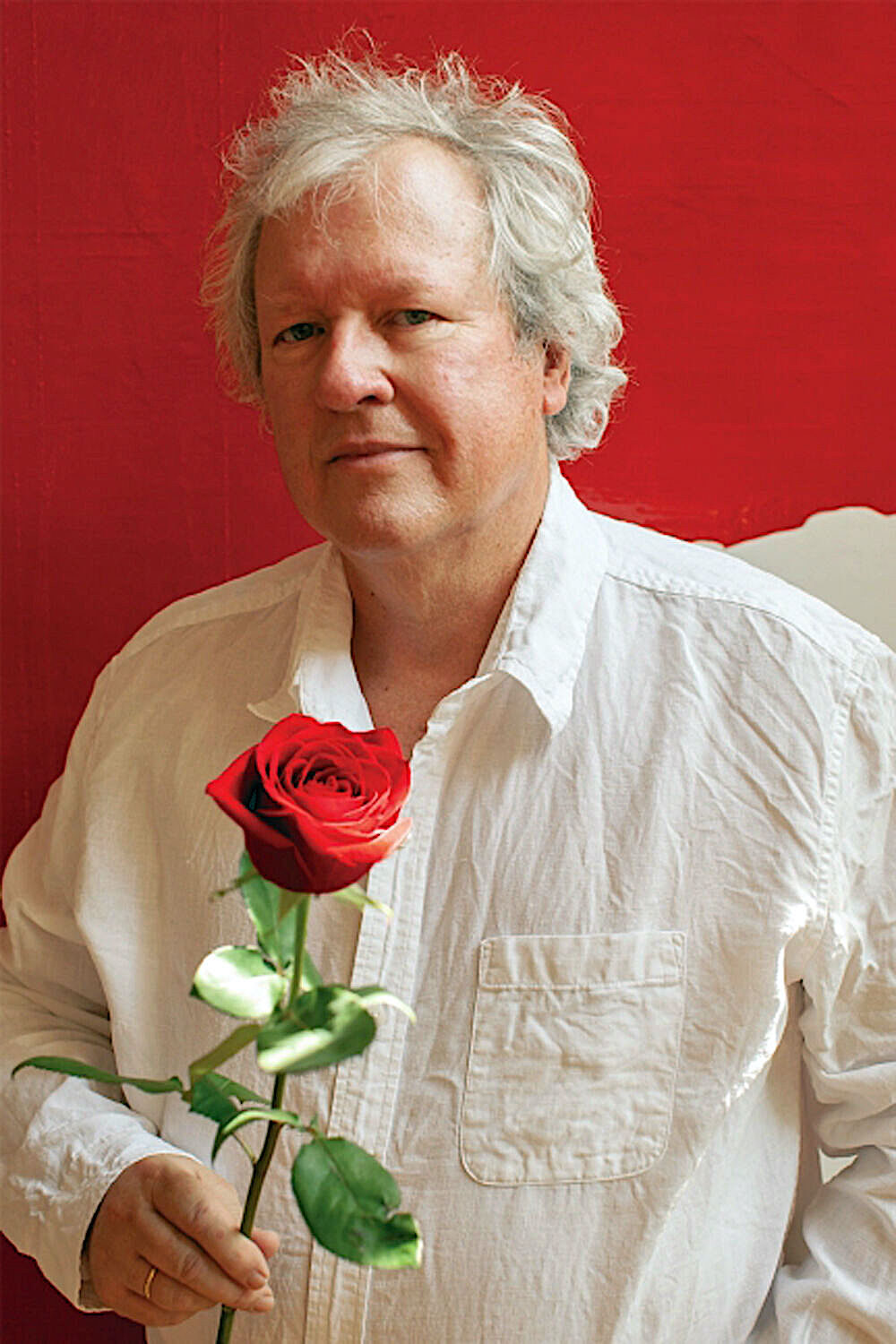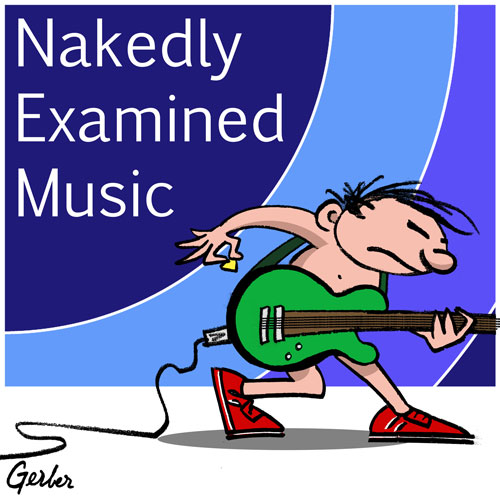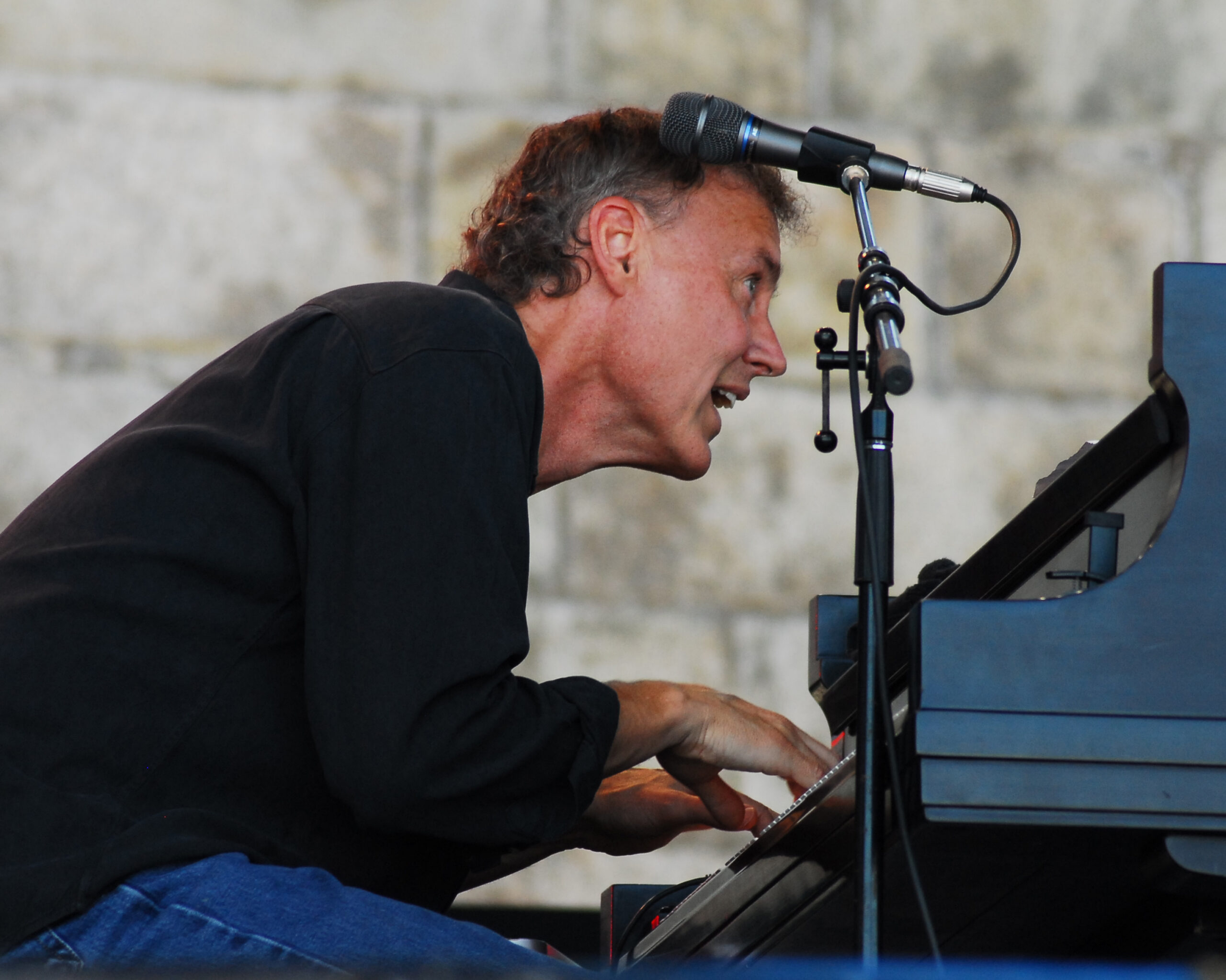
Bruce Hornsby is best known for his first album The Way It Is (1986), but has come light years since then through 18+ albums, experimenting with different styles, playing over 100 shows with the Grateful Dead, and scoring numerous projects for Spike Lee. He’s won three Grammys and recorded with music royalty including Elton John, Ornette Coleman, Branford Marsalis, Willie Nelson, Bob Dylan, etc.
On this episode of Nakedly Examined Music, host Mark Linsenmayer and Bruce discuss “Sidelines” (feat. Ezra Koenig from Vampire Weekend) from ‘Flicted (2022), “My Resolve” (feat. James Mercer of The Shins) from Non-Secure Connection (2020), and a new live version of “Shadow Hand” from the 25th Anniversary Edition of Spirit Trail. End song: “Cast-Off” (feat. Justin Vernon of Bon Iver) from Absolute Zero (2019). Intro: “The Way It Is” (Live from Köln, 2019). Learn more at brucehornsby.com and bruuuce.com.
Here, of course, is the original “The Way It is.” Listen to the 2019 NYC Epicenters version in full. My favorite single from that first album was “Every Little Kiss.” An early tune recently featured prominently in the second season of the TV show The Bear is “The Show Goes On.” You may or may not recall that Bruce co-wrote Don Henley’s hit “The End of the Innocence”; watch Bruce play that live with several jazz greats. Hear the original 1998 version of “Shadow Hand.” Bruce’s 2004 “Halcyon Days” features both Sting and Eric Clapton.
The track that Bruce co-wrote for Bon Iver’s album is “U (Man Like).” Watch the video for “Days Ahead,” another single from Bruce’s newest album ‘Flicted. Here’s the video for “Sidelines.” Watch a lyric video for “Cast-Off.” Watch Bruce and James Mercer performing “My Resolve” over the Internet during the pandemic.
Watch Bruce play piano with The Grateful Dead in 1991. Listen to Other Ones (Grateful Dead after Jerry Garcia’s death) play a classic Hornsby tune, “White-Wheeled Limousine,” live in 1998. His own version of that (from 1995’s Hot House), featured Pat Metheny and Béla Fleck. Watch him live in 2012 with Bob Weir and Branford Marsalis playing his tune “Standing on the Moon.”
Listen to Bruce on The Art of Longevity podcast. Here he is on Sodajerker. Bruce’s appearance on Ezra Koenig’s Time Crisis podcast is on #126, and you may be able to hear it with an Apple Music subscription.
Photo by Kat Fisher.
Nakedly Examined Music is a podcast hosted by Mark Linsenmayer, who also hosts The Partially Examined Life Philosophy Podcast, Pretty Much Pop: A Culture Podcast, and Philosophy vs. Improv. He releases music under the name Mark Lint.
